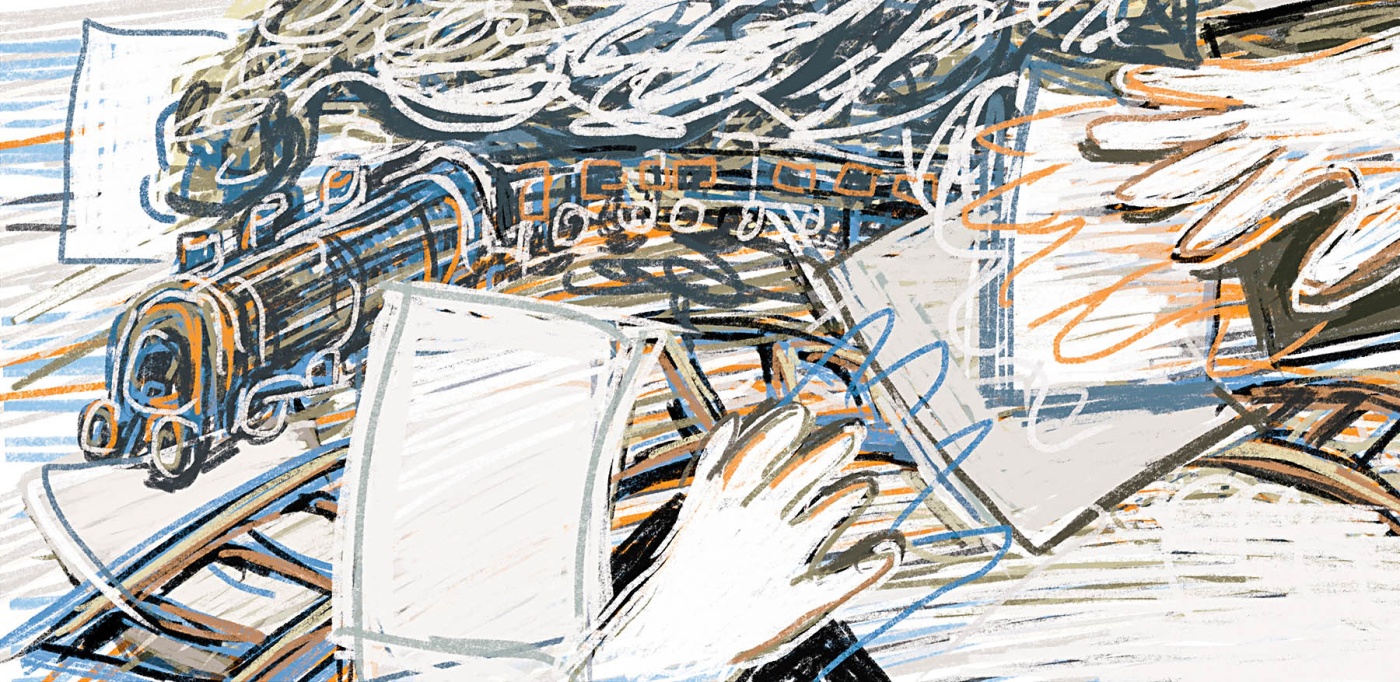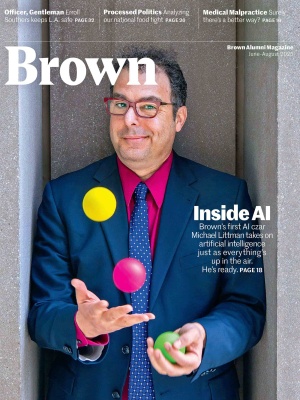In the summer of 1944, a young Tony Molho was riding with his mother on a train in Thessaloniki, Greece. Suddenly, two officers in plain clothes boarded and began to ask for everyone’s papers. Molho’s mother, who had recently returned from her escape of Nazi persecution, acted quickly, passing Molho’s little hand to that of a man standing beside them. The train stopped, and she jumped off.
Such are the stories detailed in Molho’s memoir, Courage and Compassion: A Jewish Boyhood in German-Occupied Greece, released in the U.S. last June. The book, first published in Greek in 2023 under the title The Banality of Kindness, won the Academy of Athens’s Ouranis Prize. On March 6, Molho, the David Herlihy University Professor Emeritus, sat down in Rhode Island Hall to discuss the memoir with Omer Bartov, Dean's Professor of Holocaust and Genocide Studies, and Elsa Amanatidou, director of modern Greek studies.
“It would be foolish of me to conceal my emotion at being here today,” Molho said to an audience so big the event coordinators had to open up a wall. It was impossible to reach the author over the sea of old friends.
In the first six months of the Holocaust, 90 to 95 percent of Thessaloniki’s Jewish population—the largest in Greece before the war—was slaughtered. The entirety of Molho’s maternal family perished in Auschwitz by 1943; he and his parents were the sole survivors. Molho believes his survival is attributed to three things: good luck, his parents’ courage in deciding to leave, and the people who were willing to risk everything to help.
Amanatidou asked Molho why he waited so long to write this memoir. “I learn slowly,” he responded at first, then, “This was not an easy exercise.”
The act of writing it was complicated by the fact that Molho was so young when the events occurred. Sparking a discussion of memory, Bartov asked Molho how he differentiated between his own memories and things he was told. These stories, Bartov emphasized, are essential to archive now, as most survivors of the Holocaust have passed away, were too young at the time to remember anything, or struggle to discuss their experiences.
The conversation ended with a discussion about being a Jewish person today and the many divides within the Jewish community. “The major divide at the root of it all,” Molho said, “is what are the moral consequences of the Holocaust?”






